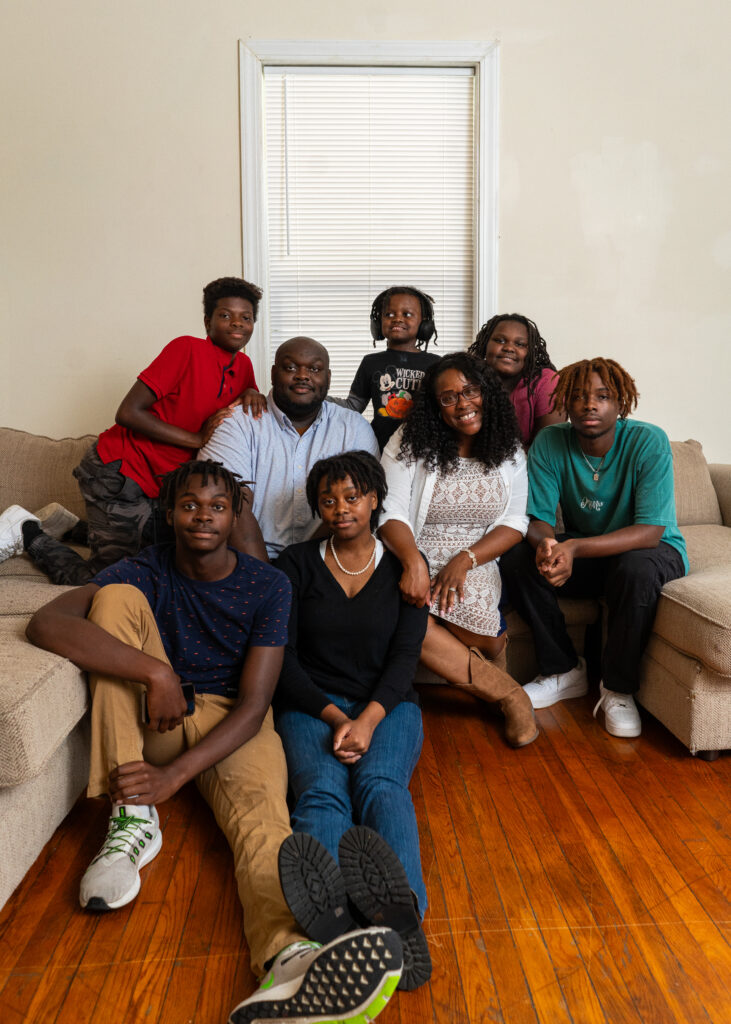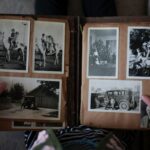Babies start out blank, clean, new, and parents get to be the ones who expose them to whatever they will know and how they will know it. Like teachers teach who they are, parents parent who they are as their children’s first teachers, passing along bits of themselves and the lessons they’ve learned throughout this journey we call life.
Here, meet three families doing this: the Schaitels, who have three children they adopted after being foster parents for six years; the Youngs, who have six biological children; and the Mayhews, who have four children, their youngest adopted from China. As they tell their stories, the parents share their parenting philosophies, and the family members share the things they learn from each other.
We hope their experiences, perspectives and wisdom they’ve learned along the way encourage you in your own being with your family, whomever that includes and whatever that looks like for you.
Velencia Morris-Young says love is the foundation of her and her husband James Young’s family and home: love from and for God, love for each other, and love for the children they have created together. This love is evidenced through the frequent laughter their family shares, the respect and encouragement each member gives the other, and the wisdom each of their children speak in their own words and ways.
The couple has six children: Omari, 19; Nevaeh, 16; Goliath, 14; Imlah, 12; Miamora, 9; and Aleem, 5.
“Love is our foundation, and God is love, and so we try to teach [our children] in that way,” Velencia says. “They are the fruit of our labor, and we hope that they will do the same … that the Lord would bless them with their own [children] one day, and they will have that same foundation built off of love.”
James says he had “two great parents,” and fatherhood, for him, is a way to continue what they passed down while fulfilling God’s desires for him by leaving a legacy through his children.
In their household, James lives out this vision in the day-to-day by working at his job to provide for their family, cooking, and being engaged in his children’s activities such as sports, French competitions, and going to college orientation. He says he is also a teacher to his children, reinforcing the social skills he and Velencia teach them, such as politeness and how to get along with each other. He also enjoys making art projects with his children, and some of them are displayed throughout their home.
With 14 years between their oldest and youngest kids, James says a challenge of parenthood is that he and Velencia can’t be in every place at one time. Velencia says it’s important to remember each of their children are different people and can’t be disciplined in the same way; parents need to “learn or listen to how [their children] are [and] their need” so each child feels like they are being heard.
“You want to let them know that you understand who they are and no matter what they do, that they are loved by you … That nothing can separate us, nothing could separate my love that I have for you,” Velencia says.
In their family, James says each of his children teach and motivate him. He looks up to his oldest son Omari who will study filmmaking at Southeast Missouri State University in the fall because he’s “putting himself on the forefront” in pursuing his goals; he admires his daughter Nevaeh’s interest in books and learning foreign languages; Goliath’s mannerism and athleticism; Imlah’s vocalness about his opinions; Miamora’s humility; and Aleem’s energy.
In order for their children to live the way she and James hope they do, their actions toward each other as wife and husband have to demonstrate those ways of living, Velencia says. This includes modeling forgiveness, letting go of hurt feelings and being there for one another despite disagreement, day after day after day.
“If I disagree with my husband on something, that’s just what it is. We can continue to sit at the table and break bread together,” Velencia says.
James agrees.
“Your actions have to be aligned with your words as a parent,” James says. “So, do everything with love.”
Their children understand their family’s vision, too, and live it out.
“Family for me is about purpose and belonging,” Nevaeh says. “Since I have a big family, it feels like I have a bunch of people that love and support me all the time, 24/7.”
Aleem says to him, family means “caring and joy.”
Goliath says for him, everything goes back to family, and he strives to be a good example for his siblings in all he does.
“Don’t take your family or your kids for granted, because one day, they won’t be there,” Goliath says. “It’s good that we spend so much time as a family now, because one day, [our parents are] not going to be here, and all [us siblings are] going to have is each other. And it’s really good that we’re building up relationship now, so that when we’re older, we’ll have each other.”
James says this is something he tells his children every day, that tomorrow’s not promised; he wants them to learn everything they can from him and Velencia while they have the chance.
Velencia says they see their family’s home as a place of practice for these things they’re teaching and learning: Inside its walls, they practice with each other putting into action the forgiveness and love they read about in the Bible.
“We’re practicing it, and it’s working for us. We’re still together,” Velencia says. “The world we live in today is kind of iffy; it is not solid. But this is solid.”


